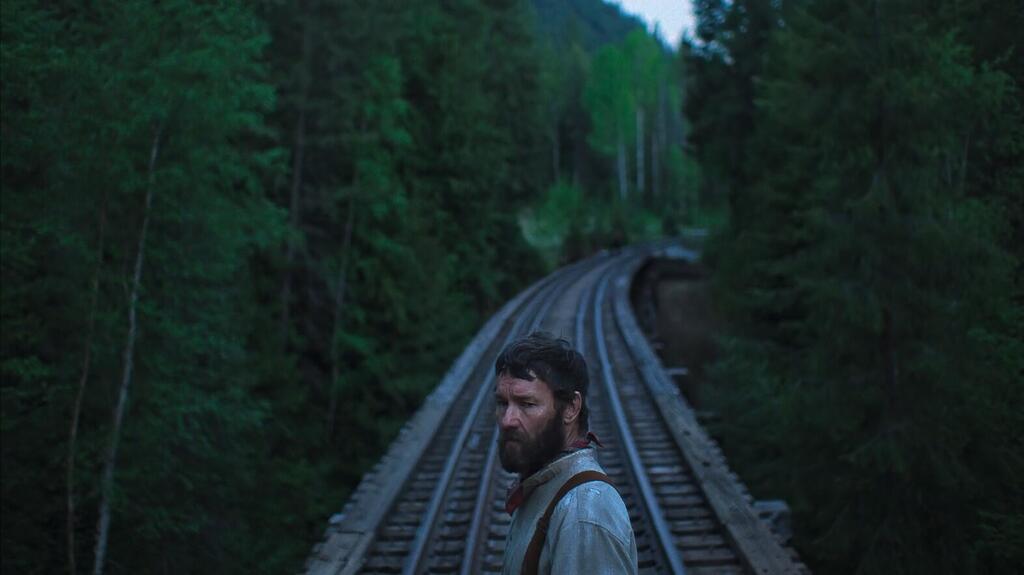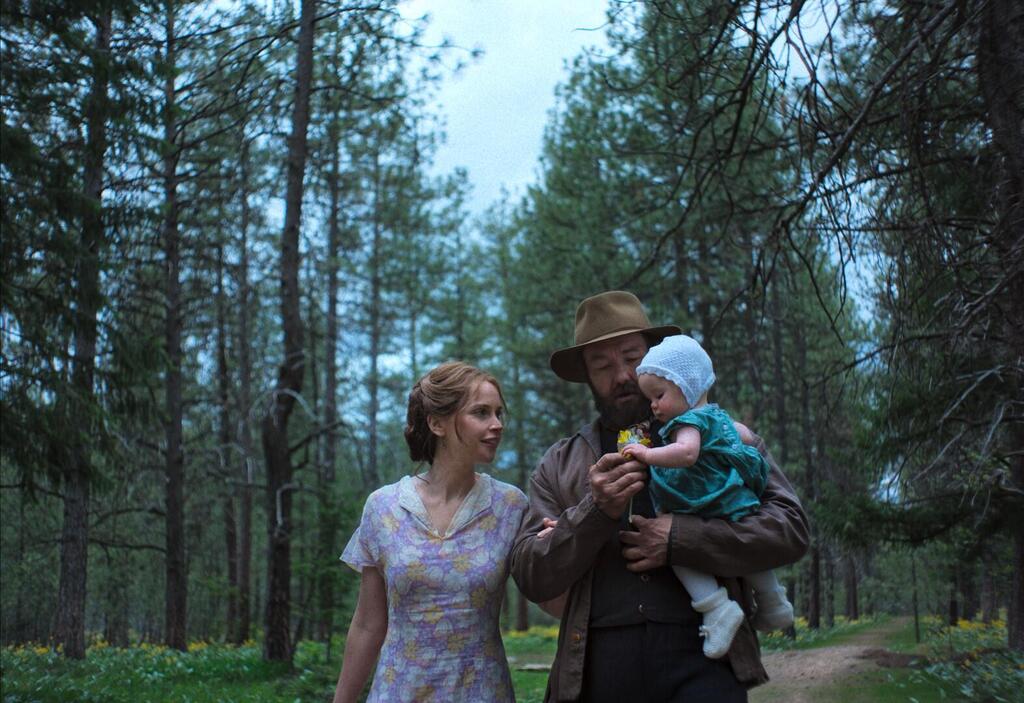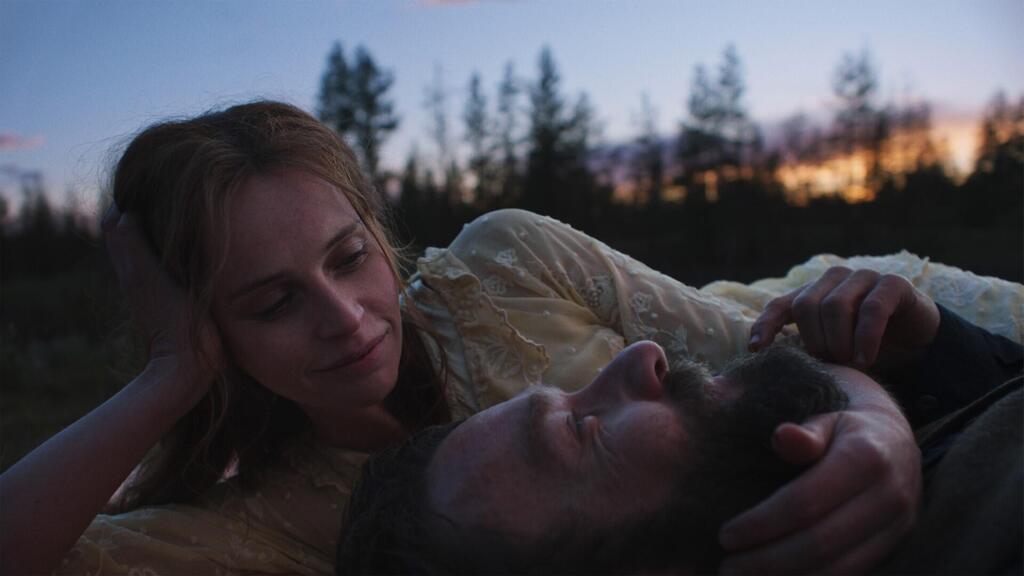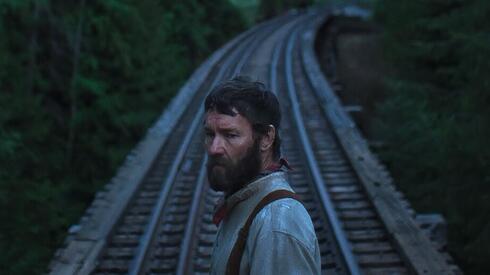 What is a human life? What is the place of the transient in the world? And what does change mean over the course of a lifetime? These questions don’t arise in an introduction to existentialism or a New Age workshop, but in a new film that just landed on Netflix, Train Dreams. The film follows nearly eight decades in the life of a simple man, from what appears to be the turn of the last century into the second half of the 20th. This man has no history — he has no idea who his parents were — and not much of a future, either. Only the present, which he spends wandering and waiting endlessly. All of it unfolds against primordial landscapes of dense forests, accompanied by an unidentified narrator who recounts his story and lends it an almost mythic quality. If this sounds like your kind of film, an experience worth watching awaits you.
What is a human life? What is the place of the transient in the world? And what does change mean over the course of a lifetime? These questions don’t arise in an introduction to existentialism or a New Age workshop, but in a new film that just landed on Netflix, Train Dreams. The film follows nearly eight decades in the life of a simple man, from what appears to be the turn of the last century into the second half of the 20th. This man has no history — he has no idea who his parents were — and not much of a future, either. Only the present, which he spends wandering and waiting endlessly. All of it unfolds against primordial landscapes of dense forests, accompanied by an unidentified narrator who recounts his story and lends it an almost mythic quality. If this sounds like your kind of film, an experience worth watching awaits you.
Train Dreams is a film about a man and his place in American history — more precisely, the history that charts the shift from what Westerns call the frontier, that mythic, pioneering expanse, to an urbanized culture. Early in the film, he joins a crew building a railroad bridge, an image that appears not only in the film’s title but symbolizes the passage from frontier and drifting to modernization. Yet the narrator (voiced by Will Patton) notes that within a few decades, a modern bridge will replace it, and the one they are building now will be forgotten. Along the way, he encounters American racism toward foreigners, in this case, Chinese immigrants, a tale of revenge, years of happiness with his small family, terrible tragedy, a constant melancholy and the recognition that we are all temporary beings in a world that keeps moving onward into the future. People even reach space.
The man, Robert Grainier, is played by Joel Edgerton, who moves through the film — cinema, after all, is also a medium that captures time passing — with a face that looks carved from stone, marking him as a mythic figure embedded in history. He meets a woman, Gladys (Felicity Jones), who becomes integral to his life, and the two build a family in a log cabin by a lakeshore — the quintessential image of the mythic American landscape, perched between culture and nature. Nature is also a source of livelihood and a target of capitalist takeover, as Grainier begins working as a logger for large companies. He and his fellow workers reshape America. When the chainsaw replaces the axe and manual saw, Grainier realizes that his time, too, has passed.
3 View gallery


From Train Dreams
(Photo: Courtesy of Netflix and Lev Cinemas)
This is director Clint Bentley’s second feature. He was also an Oscar nominee for co-writing the prison drama Sing Sing (2023). The script, which he wrote with Greg Kwedar (director and co-writer of Sing Sing), is based on a 2011 novella by Denis Johnson, described by the New York Times’ literary critic as a “miniature American epic.” That epic sensibility, distilled through one man’s life, is carried faithfully into the film, whose debt to Terrence Malick is easy to spot: the anonymous voice-over, the many shots of grass, the awe of nature, the episodic structure and the jump-cut editing all evoke the work of one of American cinema’s great spiritual and natural poets of the past half-century (which does not necessarily speak to the quality of every film). At times Bentley, like Malick, seems a bit too enamored with nature, and the film’s spiritual tone occasionally slips into poetic prettiness. (The cinematography, by Adolpho Veloso, uses an unusual 3:2 aspect ratio.)
3 View gallery


From Train Dreams
(Photo: Courtesy of Netflix and Lev Cinemas)
Train Dreams is a film about people who drift through one another’s lives, and about memories that resurface as flashbacks, sharpening Grainier’s isolation in a world growing more modern. One such figure is Arn Peeples, movingly played by William H. Macy (Fargo), who serves as a kind of environmental philosopher. It is a film about people waging war on nature and nature responding in kind: falling trees that kill, and forest fires. But to Bentley’s credit, this is not a didactic parable about harmony with nature. It is more a story about America’s development through deforestation and the price that comes with it — alienation and death among them. It is, in other words, a story about America told through the most modest means imaginable. A small-scale epic, indeed.
It seems no film has ever shown this many trees being felled and sawed. Grainier — there is something in his quiet endurance, reminiscent of the literary character Stoner, the introverted professor in John Williams’s acclaimed novel — gradually becomes a metaphor for human survival. Even encounters that might seem poised to change his life, such as a late meeting with a strong-willed woman (Kerry Condon), barely affect him. Bentley is enamored with the image of a man who has sentenced himself to solitude, waiting endlessly for what will never return, to the point that the film sometimes struggles to find other layers in his character. That isn’t a flaw: Edgerton is skilled enough to fill the slightest shifts in expression with meaning, and these surface in several excellent scenes, including one in which Grainier flies in a biplane on what becomes a journey through his own life.
3 View gallery


From Train Dreams
(Photo: Courtesy of Netflix and Lev Cinemas)
American critics have been generous with their praise for this film, and it deserves attention even if some of the enthusiasm is a bit inflated. After all, it is another film that leans on a familiar set of images to build a near-cliché of a life whose brief moment of happiness was too short. But — and this matters — the film’s imagery has stayed with me for days, and the figure of Robert Grainier, a man who lived until he didn’t, offers a measure of human insight few recent films have provided. A simple man who becomes both history and American mythology — Forrest Gump without the box of chocolates.

